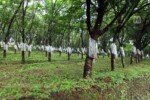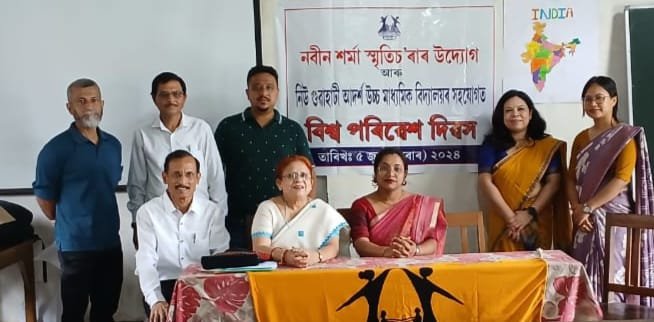GUWAHATI, April 30: A joint initiative of tyre manufacturers and the Rubber Board of India has been rolled out across the Northeast region and West Bengal to improve the quality of rubber farmers’ produce by imparting training and building infrastructure over the next five years, officials said on Wednesday.
The programme is a part of the ongoing Rs 1,100-crore project Indian Natural Rubber Operations for Assisted Development (INROAD) and is named ‘iSPEED’, which will entail an additional amount of Rs 145 crore, they said.
INROAD entails the development of two lakh ha of rubber plantation in the Northeastern states and West Bengal, financially supported by Apollo Tyres, CEAT, JK Tyre and MRF, and it is being implemented by the Rubber Board of India in association with the Automotive Tyre Manufacturers’ Association (ATMA).
“The project, iSPEED, is a five-year commitment to directly benefit over two lakh smallholder rubber farmers and nursery owners across the Northeast and West Bengal by imparting structured skill training, deploying modern infrastructure and improving quality standards at source,” ATMA chairman Arun Mammen said.
The industry body is investing in the knowledge and capabilities of the rubber growers, empowering smallholders with scientific know-how, sustainable practices and shared infrastructure, he added.
Rubber cultivation in the Northeast has grown significantly under the INROAD project with over 1.36 lakh new growers taking up plantation in the past four years, an official said.
However, limited access to scientific tapping techniques, lack of quality processing infrastructure and disease management continue to impact the yields, he said.
To address these gaps, iSPEED will support the deployment of 3,000 smokehouses for high-quality sheet production, 3,000 sheet rolling machines, model nurseries and demonstration units across key field stations, processing and grading centres for post-harvest management and a network of lead farmers to support community-based knowledge transfer.
The ATMA chairman had on Monday and Tuesday launched the initiative formally by inaugurating a few smokehouses in Tripura and Assam, tailor-made for the region and created using local materials.
The Rubber Board will be the primary implementation partner for iSPEED, supported by regional institutions like Tripura University and other domain experts.
Commenting on the development, INROAD chairman Pravin Tripathi said: “With INROAD laying the foundation, iSPEED will bring the momentum. We are building rural infrastructure and skilling models that will outlast the project cycle and create sustainable value for growers.”
Since the majority of beneficiaries of the project are small landholders with holdings of less than one acre, INROAD is encouraging group approach for creating infrastructure so that the entire community is empowered, he added.
Over 1.25 lakh hectares of rubber plantation have been completed in Northeast and West Bengal as part of the INROAD project by four leading tyre manufacturers of the country.
The INROAD project, which was scheduled to be completed in five years, got delayed and will be over in six years, ATMA director general Rajiv Budhraja said.
“We faced several challenges in implementing the project. The major challenge was the COVID-19 pandemic immediately after we announced the initiative. It was beyond anyone’s control. That postponed everything,” he added.
Non-availability of planting material in the Northeast and transporting the same from Kerala consumed a huge amount of time, and it eventually slowed the project, Budhraja said.
“The Rubber Board was the key agency in identifying the beneficiaries. This also took some time. Presently, the major challenge we are facing is the uncertain weather conditions in this region. Excessive rain is hampering the progress and delaying the project further,” he added.
Tripathi said once the INROAD would be over and the region will start producing around three lakh tonnes of natural rubber, and the Northeast is estimated to contribute 40-45 per cent of the country’s overall production, up from around 15 per cent at present. (PTI)












